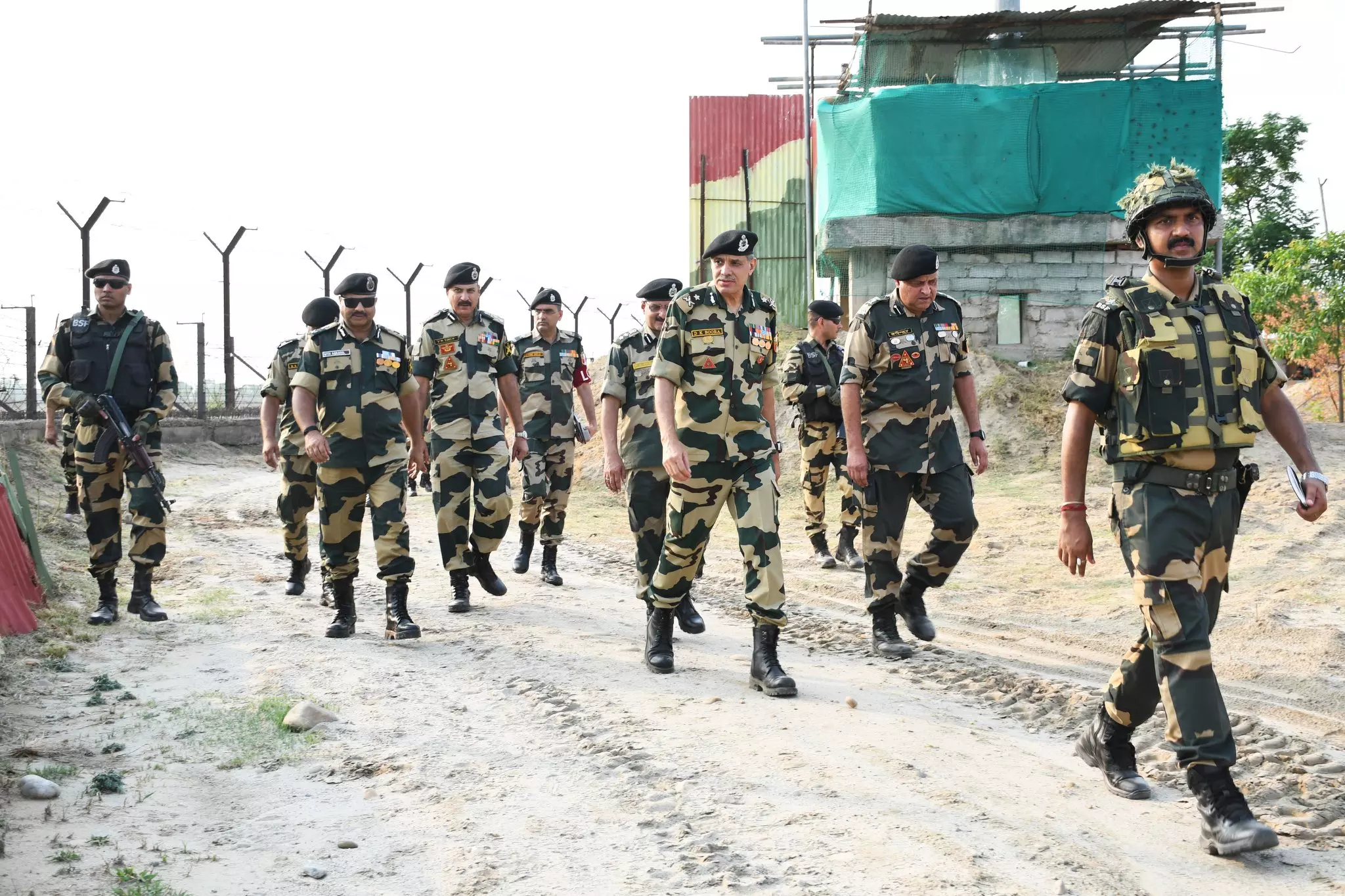Army, BSF alerted as dreaded militant commander, 18 other prisoners escape from PoJK jail

Srinagar: The Army and Border Security Force (BSF) which are at the forefront of defending the Line of Control (LoC) and International Border (IB) with Pakistan in Jammu and Kashmir have been alerted following 19 prisoners including a dreaded militant commander escaped from a jail in Pakistan-occupied-Jammu and Kashmir (PoJK).
On Sunday night, Ghazi Shehzad who had been arrested on charges of terrorism by PoJK police last year and 18 other prisoners escaped from a low-security jail in the Rawalakot area of the held territory after taking the police personnel guarding the premises hostage.
One inmate identified by his first name Khayam and jailed on drug-related charges was killed in a shootout between the prisoners and the security guards during the jailbreak. It is not clear if the escaping prisoners had acquired weapons prior to the jailbreak or they used those snatched from the security guards during the reported scuffle.
A police source in J&K’s Poonch district said that the security forces have been asked to remain vigilant to ensure that Shehzad or any other fleer does not sneak into J&K. Rawalakote, the main town of the Poonch district of PoJK, falls in close proximity of the LoC.
Reports from across the LoC said that Shehzad owes allegiance to Lashkar-e-Taiba (LeT) and Hafiz Muhammad Saeed-led Jama'at-ud-Da'wah. Shehzad had been active in J&K before his arrest for his alleged involvement in terror violence during the heyday of militancy in the erstwhile state. One report said that he was sent back to Pakistan in a prisoners’ exchange.
On returning to PoJK, he had established an arms training camp for militants who would be then pushed to the Indian side of the de facto border to attack the security forces and carry out other violent acts, the reports said.
These reports quoting official sources in Muzaffarabad also said that Shahzad, a resident of PoJK, had launched his own militant outfit and named it as Tehreek Tahafuz-e-Jammu and Kashmir (The movement for defence of Jammu and Kashmir) some time ago. He had also declared to start an “armed struggle” for establishing an independent state of Jammu and Kashmir following which he was arrested by the PoJK authorities.
According to these reports, Shehzad is believed to be the mastermind of the jailbreak and the escape of inmates, most of them convicts and undertrials in criminal offences. A massive manhunt has been launched throughout PoJK in an effort to rearrest the escapees, the reports added.
A section of Pakistani media has reported that the PoJK’s Counter-Terrorism Department (CTD) and other security agencies had some time ago issued a ‘red alert’ and asked the authorities to shift the “dangerous” prisoners including those accused of being involved in terrorism from the low-security prison in Rawalakot to a high-security jail in Muzaffarabad or Mirpur, another major town of PoJK. But the government in Muzaffarabad completely ignored the warning.
The PoJK government has now constituted a committee to probe the escape of prisoners. The region’s Inland Revenue Secretary Muhammad Raqeeb has been appointed as the chairman of the probe committee while Poonch Commissioner Sardar Waheed and DIG Poonch Sheharyar Sikandar are its members. Earlier, the POJK’s Special Interior Secretary Badar Muneer was removed from his post and replaced by another senior officer Raja Tahir Mumtaz.
The 776-km- long LoC is the responsibility of the Indian Army whereas the some BSF battalions placed under its operational control. The BSF, however, is independently tasked to guard the 198-km stretch of the India-Pakistan border in Jammu region. Being part of the 2,912 km India-Pakistan border from Gujarat to J&K, it starts at Paharpur in Kathua district and ends at Chicken’s Neck corridor in Akhnoor sector (Jammu district) where the LoC begins. In India, this 198-km stretch of the borderline is called International Border (IB) but is known as ‘Working Boundary’ in Pakistan as it passes through a “disputed region”. In public parlance it is often referred to as ‘Sialkot-Jammu border’, however.
